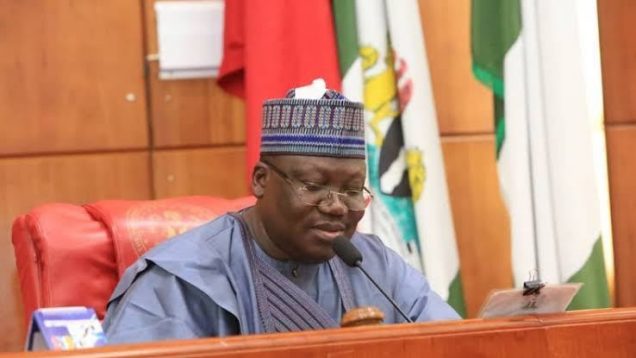
There was drama over Nigeria’s power sector crisis in the Senate yesterday as stakeholders outlined the causes of Federal Government’s $29b annual losses due to failed Share Purchase Agreement (SPA).
The Power Holding Company of Nigeria (PHCN) was unbundled in 2013 to pave way for the emergence of six Generating Companies (GENCOs), 11 Distribution Companies (DISCOs) and the Transmission Company of Nigeria (TCN), while the GENCOS and DISCOs were fully privatised.
During an investigative hearing on power sector recovery plan, Senate President, Ahmad Lawan, condemned the signing of the SPA, which he said, had dragged the country into deeper financial crisis without meaningful outcome and sought investigation of all aspects of the agreement.
It was the Senate’s second open hearing in six months after the December 2019 roundtable discussion on the troubled power sector in Abuja.
Lawan expressed shock that the Federal Government entered into the agreement when it knew that it was incapable of meeting its terms.
His words: “This is waste, why should we sign this kind of document? In fact, the World Bank guaranteed some of the agreement even though it warned us against signing. My concern now is that we want World Bank to come to our aid to review this.
“How can we be paying N15b to the GENCOS and DISCOS monthly and the CBN would be running from pillar to post to raise money for work not done. Something has to give and honestly, we can’t continue with this arrangement.”
Also at a roundtable discussion organised by the Senate last December, Country Representative of Energy Market and Rate Consultants, Mrs. Rahila Thomas, said to survive, the Federal Government needed to urgently inject N1.23tr into the power sector.
“The wrong assumptions upon which the privatisation was concluded in 2013 has to do with generation capacity government put at 6,500 megawatts, but later turned out to be 3,453 megawatts.
“Other assumptions are the loss of every Naira of kilowatts put at 21kobo but later turned out to be 52kobo per Naira of kilowatts with attendant unanticipated losses amounting to over N1 trillion now,” she said.
She further lamented that investors loss in the sector arose from subsidies government promised on yearly basis on the 21kobo loss per N1 kilowatts, which later increased to 52kobo without required subsidy payments by government.
Among other challenges, Thomas also disclosed that investors had not accessed the N600b government reportedly approved for the sector in 2019, 21 days to the end of the financial year.
